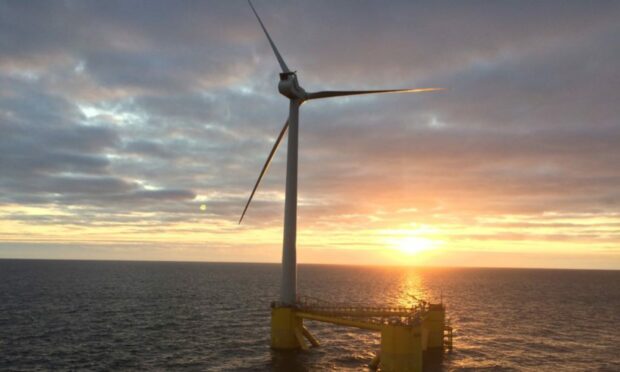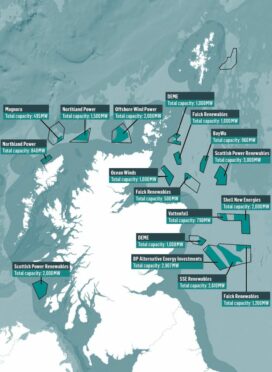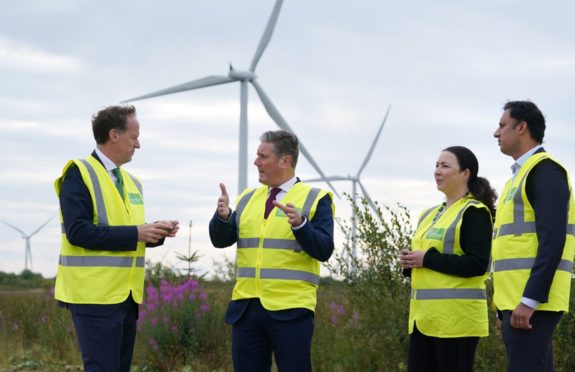Nicola Sturgeon accused opponents of “girning” about major offshore wind investment in a row over human rights, profits and selling off access “on the cheap”.
The first minister was visibly rattled by Scottish Labour leader Anas Sarwar’s criticism at Holyrood days after the £700 million ScotWind deal was unveiled.
Announcing the massive investment in renewable energy, Ms Sturgeon said it is “one of the most exciting things for Scotland in a long, long time”.
But at First Minister’s Questions on Thursday, Mr Sarwar raised the “questionable human rights records” of some of the successful firms.
He also warned foreign countries, including Sweden, would have a bigger stake in the offshore energy produced in Scotland than the Scottish Government.
‘Sold on the cheap’
Mr Sarwar said: “This SNP Government have sold on the cheap the right to profit from Scotland’s energy transition to multinational companies with questionable human rights records.
“One of the new owners of Scotland’s seabed were fined 54 million US dollars for bribing Nigerian officials and 88 million US dollars for bribing Indonesian officials.
“Another one was found to have contributed to human rights abuses at one of its construction sites, of destroying villages in Myanmar, of relying on forced labour and using slavery to build pipelines.
“Surely these aren’t people the Scottish Government should be doing business with?”
‘Massive potential’
Cases referenced by Mr Sarwar include the Marubeni Corporation that, in partnership with SSE, has been awarded rights for a floating offshore wind turbine site across 858 square kilometres of seabed.
The Japanese organisation paid a multimillion-dollar penalty in connection with a decade-long scheme to bribe Nigerian government officials for engineering, procurement and construction contracts.
France’s TotalEnergies, which in a consortium secured rights to develop a wind farm off the west coast of Orkney, was implicated in historic claims that the military government in Burma had used forced labour and its soldiers had employed murder and rape in the laying of a pipeline through the country.
Ms Sturgeon said there were “appropriate processes in place to do due diligence” on the consortiums allowed to develop the offshore projects, and said the deal “offers massive potential to Scotland”.
Major exporter
Responding to Mr Sarwar, Ms Sturgeon added: “Not only does this give us the potential to meet our own energy needs from renewable sources, it positions us with the ability to be a major exporter of renewable energy, including green hydrogen, and it gives enormous potential for our supply chain.”
Sources close to Mr Sarwar claimed the SNP leader later called him a disgrace when the cameras were turned off.
In the chamber, Mr Sarwar replied: “This is about the Scottish supply chain, Scottish companies and Scottish jobs.
“Because the sad reality is that this is an SNP Government that doesn’t understand economic development: Scottish bridges built with Chinese steel, Scottish wind farms with turbines built in Indonesia, ferries not built at Scottish shipyards but built in Poland and Turkey, and now Scotland’s seabed owned by foreign multinationals with woeful human rights records.”


